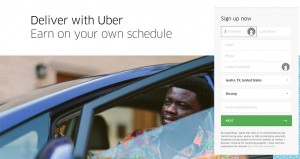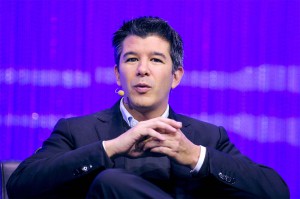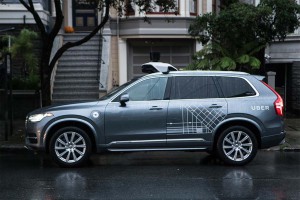Uber has agreed to pay $20 million to drivers who claim they received less pay but faced higher costs after being recruited by the ride-sharing service.
The settlement with the Federal Trade Commission is the latest in a series of legal battles for San Francisco-based Uber Technologies, the company last month ending an autonomous vehicle test project in its home town after a run-in with California over its refusal to get the necessary permits.
The FTC settlement centers around a recruitment effort by Uber which, driver’s alleged, had promised them high pay for their services. But the government determined that only a small number of drivers operating in 18 major cities earned what the ride-sharing service had published online. It also determined that drivers were paying higher-than-promised fees to lease the vehicles they drove.
Uber bases its business model around lining up a network of independent contractors who use special smartphone apps while driving for the company. In turn, customers hail rides using their own smartphones. The company takes a cut on what those drivers earn.
“Many consumers sign up to drive for Uber, but they shouldn’t be taken for a ride about their earnings potential or the cost of financing a car through Uber,” said Jessica Rich, director of the FTC’s Bureau of Consumer Protection.
(Ride-sharing giant Uber posts king-size loss. Click Here for the full story.)
There are today hundreds of thousands of drivers working for Uber around the U.S. and in a number of foreign countries, as well. The FTC accused the company of intentionally misleading drivers by dangling promises of big weekly payouts that, the agency contends, never materialized for a large portion of those contractors.
According to a statement posted on Uber’s website aimed at recruiting drivers in 2015, CEO Travis Kalanick claimed the mid-range annual income in New York City topped $90,000, with the figure at $74,000 in San Francisco. But the FTC determined those figures were inflated by as much as one-third.
Exactly how many drivers will share the settlement – nor how much each will receive — wasn’t made clear in documents filed with the federal court in San Francisco. But Uber said it was aiming to move on and resolve the problems that led to the dispute.
“We’ve made many improvements to the driver experience over the last year and will continue to focus on ensuring that Uber is the best option for anyone looking to earn money on their own schedule,” it said in a statement.
The FTC agreement is just the latest legal issue that Uber has had to deal with. Drivers in several communities have sued it, alleging they should be considered employees, eligible for a range of benefits, rather than independent contractors.
But Uber has had a variety of other legal challenges. In early December, it launched a pilot program in San Francisco operating a small fleet of specially modified Volvo XC90s, the utility vehicles capable of operating in autonomous mode. But the company refused to get the permits required by the State of California and, after facing threats from the Department of Motor Vehicles shut the project down and moved the vehicles to Arizona.
(For more on the San Francisco autonomous test controversy, Click Here.)
The ride-sharing service has faced other challenges meant to limit where and how it can operate, and it has also battled with a number of communities over the way it conducts background checks on its drivers – several of which have been charged with assaulting and robbing customers. Both Uber and Lyft pulled out of Austin, Texas last year rather than comply with regulations requiring them to fingerprint drivers.
(Click Here to see why Uber predicts a bright future for ride-sharing.)



